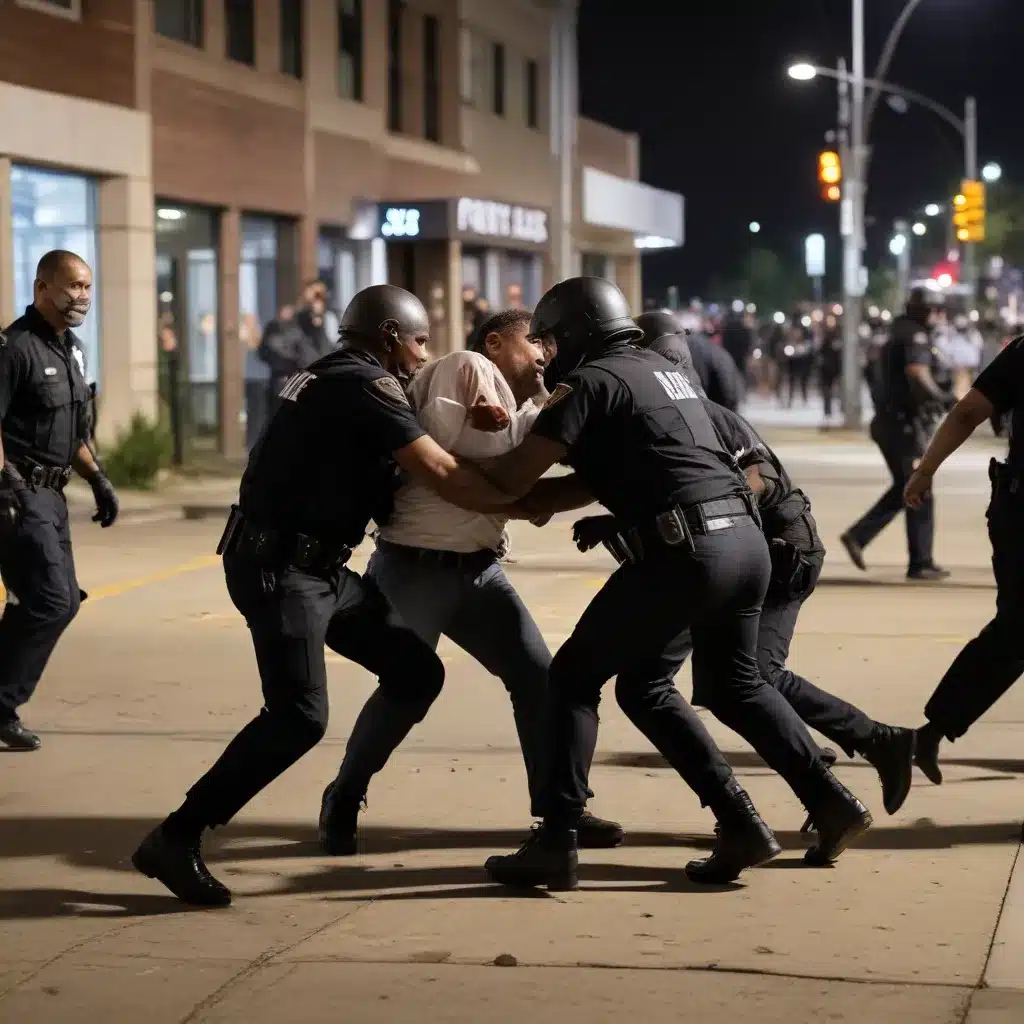
Incidents of Police Interventions
Hosting international football tournaments brings with it a myriad of challenges, not least ensuring the safety and security of players, officials, and spectators. Tragically, the 2024 Copa América in the United States was marred by repeated incidents of police violence and heavy-handed crowd control tactics that tarnished the reputation of the competition.
Excessive Force by Law Enforcement
From the outset, there were worrying signs that the local authorities were ill-prepared to manage the influx of passionate fans. In the opening match between the host nation and regional rivals Mexico, riot police were caught on camera deploying tear gas and rubber bullets against peaceful supporters, many of whom were families with children. The disproportionate response, which left dozens injured, drew widespread condemnation from human rights groups and football governing bodies.
Sadly, this was not an isolated incident. As the tournament progressed, there were multiple reports of law enforcement using excessive force to subdue crowds, with accounts of officers striking fans with batons and firing concussion grenades indiscriminately into the stands. The heavy-handed approach appeared to target certain groups, with allegations of racial bias in the policing strategy.
Stadium Access Failures
Alongside the troubling police interventions, the Copa América was also plagued by a series of security breaches that compromised the safety of those inside the stadiums. In one high-profile incident, hundreds of ticketless fans were able to forcibly gain entry to a quarterfinal match in Los Angeles, overwhelming the turnstiles and sparking chaotic scenes as stewards struggled to regain control.
The lack of adequate security measures was further exposed when a group of spectators managed to scale the fences and invade the pitch during a tense semi-final clash. The pitch invasion not only endangered the players but also led to lengthy delays as officials attempted to restore order.
Spectator Altercations
Beyond the issues with law enforcement and stadium access, the Copa América was also marred by violent clashes between rival fan groups, which highlighted the ongoing challenge of hooliganism in the sport.
Fan Brawls and Hooliganism
Throughout the tournament, there were numerous reports of organized fan groups engaging in pre-planned fights, often in the vicinity of the stadiums. In one particularly ugly incident, supporters of two South American teams were involved in running battles that spilled out onto the surrounding streets, resulting in dozens of arrests and several serious injuries.
The pitch invasions were not limited to security breaches, as there were also instances of fans rushing the field to confront players and officials, further disrupting the flow of the matches.
Crowd Control Challenges
In the face of these recurring fan altercations, the local authorities were often slow to respond, or resorted to heavy-handed tactics that exacerbated tensions. The use of tear gas, rubber bullets, and other riot control measures not only failed to quell the violence but also raised concerns about the disproportionate use of force against supporters.
The crowd management challenges exposed the need for more nuanced and community-oriented approaches to policing football events, where de-escalation and dialogue are prioritized over aggressive suppression.
Impacts on Football Culture
The incidents that marred the 2024 Copa América have had a lasting impact on the perception and reputation of the tournament, casting a shadow over the sport’s ability to bring people together in a spirit of unity and sportsmanship.
Tarnished Reputations
The widespread media coverage of the police violence, security breaches, and fan brawls has done significant damage to the image of the Copa América, with many commentators questioning the ability of the United States to host major international football events in the future. The negative publicity has also raised concerns about the potential impact on the country’s bid to host the 2030 World Cup.
Beyond the immediate reputational harm, these incidents have also undermined public trust in the authorities’ capacity to ensure the safety and security of football fans, potentially discouraging future attendance and participation in the sport.
Calls for Reform
The fallout from the 2024 Copa América has renewed calls for sweeping reforms to the way football events are policed and secured in the United States. Advocates are pushing for improved training and de-escalation tactics for law enforcement, as well as enhanced coordination between stadium management, fan groups, and community organizations to address the root causes of hooliganism and violence.
There is also a growing demand for greater transparency and accountability in the handling of these incidents, with calls for independent investigations and the implementation of robust oversight mechanisms to prevent future occurrences.
Broader Societal Implications
The issues that plagued the 2024 Copa América cannot be viewed in isolation, as they are inextricably linked to wider societal dynamics and the complex relationship between law enforcement, sports, and marginalized communities.
Intersection with Racial Dynamics
The allegations of racial bias in the policing strategy have resonated deeply with many fans, particularly within the Latin American and African American communities, who have long experienced disproportionate targeting by law enforcement at sporting events. These incidents have reignited discussions about systemic racism and the need for more inclusive and equitable approaches to event security.
Debate over Policing Priorities
The heavy-handed response by law enforcement has also fueled a broader debate about the appropriate balance between ensuring public safety and upholding civil liberties. Critics argue that the focus on crowd control and suppression has come at the expense of more nuanced, community-oriented strategies that could address the underlying causes of violence and build trust between fans and the authorities.
As the United States grapples with these complex issues, the lessons learned from the 2024 Copa América will undoubtedly shape the future of policing and event management in the country, with implications that extend far beyond the world of football.
Explore the rich history, passionate fan culture, and tactical evolution of Brazilian football on Brazilian-Football.com.

